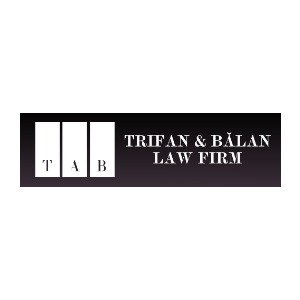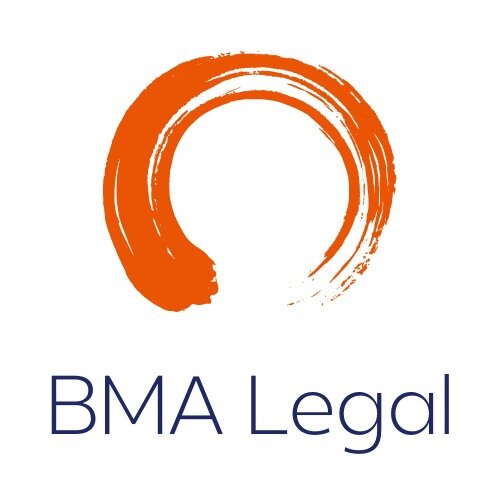Best Wage & Hour Lawyers in Romania
Share your needs with us, get contacted by law firms.
Free. Takes 2 min.
Or refine your search by selecting a city:
List of the best lawyers in Romania
About Wage & Hour Law in Romania
Wage & Hour law in Romania is governed primarily by the Romanian Labour Code, which outlines the fundamental rights and responsibilities of employers and employees. This includes regulations on minimum wage, working hours, overtime, breaks, and holiday entitlements. The legislation is designed to protect workers against exploitation and ensure fair compensation for their labor, aligning with European Union directives and international labor standards.
Why You May Need a Lawyer
There are several situations where you might need legal assistance in the field of Wage & Hour in Romania:
- If you're facing disputes over unpaid wages or overtime compensation
- In cases of unfair dismissal or forced resignations
- If you need to understand your entitlements to breaks, leave, and rest periods
- When dealing with complex employment contracts or non-standard work arrangements
- If you suspect or are accused of violating wage regulations
A lawyer can help clarify your rights, assist in negotiations or mediations, and represent you in court if necessary.
Local Laws Overview
Key aspects of Wage & Hour laws in Romania include:
- Minimum Wage: The minimum wage is established by government decision and is subject to change. Employers are obligated to comply with the current minimum wage rates.
- Working Hours: The standard working week is 40 hours, with a daily limit of 8 hours. Any additional work may qualify for overtime compensation.
- Overtime: Overtime is usually compensated with a higher pay rate or compensatory leave. Employers must justify the need for overtime work.
- Breaks and Rest Periods: Employees are entitled to daily breaks and a minimum rest period of 12 consecutive hours between workdays. Weekly rest is also mandatory.
- Paid Leave: Employees are entitled to annual paid leave, the duration of which is determined by the Labour Code or collective agreements.
Frequently Asked Questions
What is the current minimum wage in Romania?
The minimum wage is determined by governmental decree and is subject to annual review and adjustments.
How is overtime work compensated?
Overtime is generally compensated with either higher pay (usually at least 125% of the standard rate) or equivalent time off.
Are there exceptions to the standard working hours?
Yes, exceptions apply for certain industries and roles, such as those involving shift work, where different hour allocations may be necessary.
Am I entitled to breaks during my workday?
Yes, employees are entitled to adequate breaks, the specifics of which should be stipulated in employment contracts or collective agreements.
Can my employer refuse to pay for my overtime hours?
Refusal to compensate overtime is generally a breach of the Labour Code, and you should consult legal advice if this occurs.
What should I do if I am not receiving the minimum wage?
You should first address the issue with your employer and seek advice from a legal professional or labor inspectorate if unresolved.
How many days of annual leave am I entitled to?
The Labour Code stipulates at least 20 days of paid leave annually, though agreements may extend this period.
Can I claim unpaid wages after leaving my job?
Yes, claims for unpaid wages can be pursued even after leaving employment, although they must be filed within a specific timeframe.
What is a valid reason for an employer to request overtime?
Valid reasons often include increased workload or unforeseen projects requiring immediate attention, which must be justified by the employer.
How do collective agreements affect wage regulations?
Collective agreements can provide additional benefits beyond the statutory minimums and often include detailed provisions for wages and working conditions.
Additional Resources
If you need further information or assistance, consider these resources:
- Inspectorate of Labour (Inspectoratul Teritorial de Muncă): Can assist with inspections and complaints.
- National Trade Unions: Often provide advice and representation to workers concerning their labor rights.
- Ministry of Labour and Social Justice: Provides information and guidance on employment laws.
Next Steps
If you believe you need legal assistance with Wage & Hour issues, consider taking the following steps:
- Gather all relevant documentation, such as contracts, payslips, and correspondence with your employer.
- Contact a qualified labor lawyer for a consultation to discuss your case and possible courses of action.
- If you're part of a trade union, reach out for additional support and resources they may provide.
- Consider filing a formal complaint with the Inspectorate of Labour if your rights have been violated.
Taking proactive steps early can help protect your rights and ensure you receive fair treatment in the workplace.
Lawzana helps you find the best lawyers and law firms in Romania through a curated and pre-screened list of qualified legal professionals. Our platform offers rankings and detailed profiles of attorneys and law firms, allowing you to compare based on practice areas, including Wage & Hour, experience, and client feedback.
Each profile includes a description of the firm's areas of practice, client reviews, team members and partners, year of establishment, spoken languages, office locations, contact information, social media presence, and any published articles or resources. Most firms on our platform speak English and are experienced in both local and international legal matters.
Get a quote from top-rated law firms in Romania — quickly, securely, and without unnecessary hassle.
Disclaimer:
The information provided on this page is for general informational purposes only and does not constitute legal advice. While we strive to ensure the accuracy and relevance of the content, legal information may change over time, and interpretations of the law can vary. You should always consult with a qualified legal professional for advice specific to your situation.
We disclaim all liability for actions taken or not taken based on the content of this page. If you believe any information is incorrect or outdated, please contact us, and we will review and update it where appropriate.
Browse wage & hour law firms by city in Romania
Refine your search by selecting a city.

















